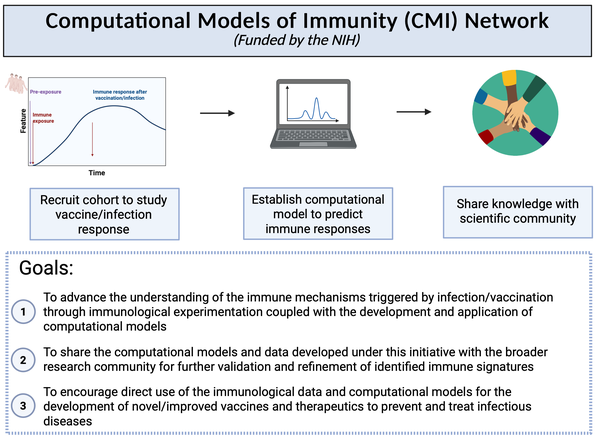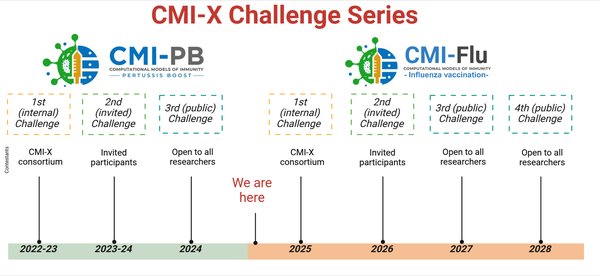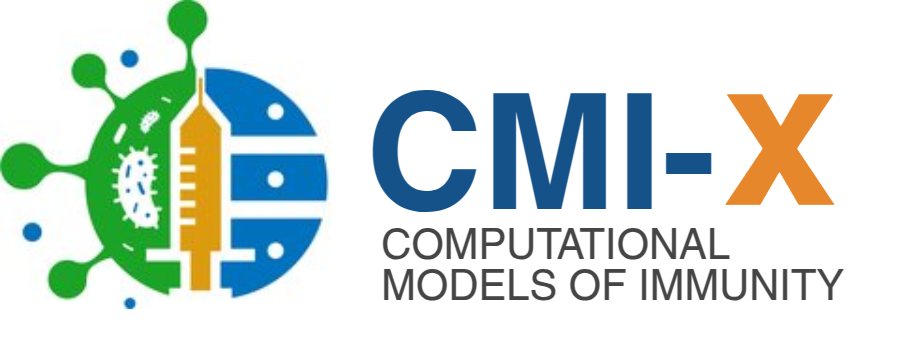The CMI-X consortium
The Mission of CMI-X is to drive progress in vaccine response research by generating experimental data, training and testing computational models, and assessing performance through prediction challenges with the broader scientific community.
The Computational Models of Immunity (CMI) consortium was created to develop computational models of immunity to infectious diseases other than HIV/AIDS. This CMI network (Figure 1), seeks to advance the understanding of complex immune mechanisms. Member labs generate data and develop, refine, and validate computer-based models of immune responses before and after vaccination against infectious disease. The network is currently on its second series, CMI-Flu (Influenza Vaccination, U01AI187062), after the successful completion of CMI-PB (Pertussis Booster, U01AI150753). Each series has been funded by the National Institute of Allergy and Infectious Diseases (NIAID).

Figure 1: Outline of the CMI consortium.
CMI-X community prediction challenges
Computational models that predict an individual's response to a vaccine offer the potential for mechanistic insights and personalized vaccination strategies. These models are often derived from systems vaccinology studies that generate immune profiles from human cohorts pre- and post-vaccination. Most of these studies involve relatively small cohorts and profile the response to a single vaccine. The ability to assess the performance of the resulting computational models would be improved by comparing their performance on independent datasets, as has been done with great success in other areas of biology, such as protein structure prediction. To transfer this approach to system vaccinology studies, we established a community resource that focuses on the evaluation of Computational Models of Immunity (CMI-X). The CMI-X challenge series generates experimental data that is made available to researchers for the purposes of testing/validating hypotheses or generating new insights, as well as for model building and evaluation. Models are evaluated through a series of annual data releases and associated challenges. By integrating multi-modal immunological data, the series seeks to advance predictive modeling in systems vaccinology, foster data harmonization, and enable mechanistic insights into vaccine-induced immunity. The ultimate goal is to inform personalized vaccine strategies through robust, generalizable models.
The series began with the CMI-PB (Pertussis Boost) challenge series: an internal challenge in 2022–23, an invited challenge in 2023–24, and a public challenge in 2024. It now transitions to the CMI-Flu (Influenza Vaccination) challenge series, launching with an internal challenge in 2025, followed by an invited challenge in 2026, and two public challenges in 2027 and 2028. Participation progressively expands from the CMI-X consortium to invited teams and eventually the broader research community, promoting open, collaborative innovation in predictive immunology (Figure 2).

Figure 2: CMI-X Challenge Series
Last updated: Dec. 7, 2025, 7:04 p.m.
